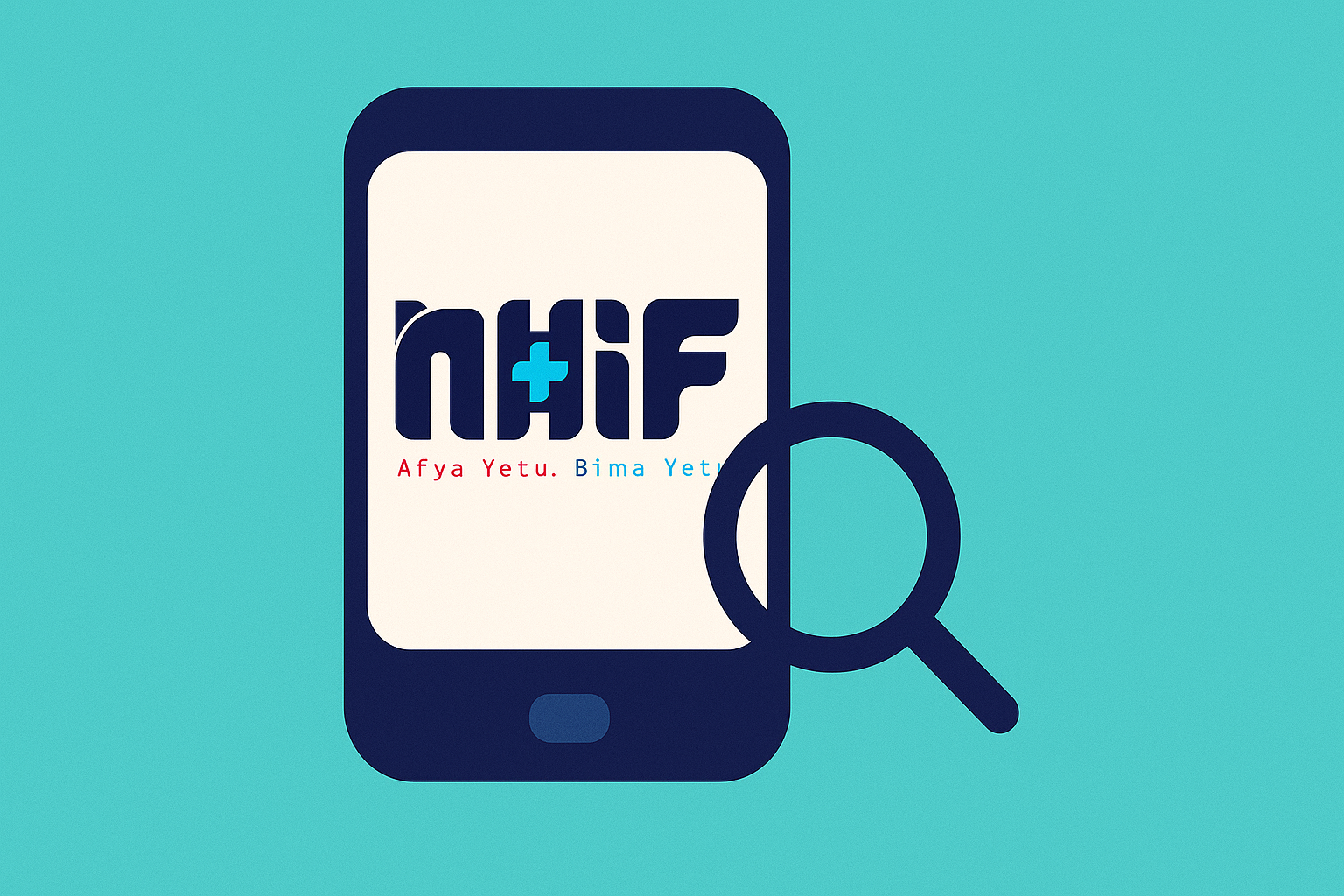It’s easy to lose track of your NHIF number, especially if you registered years ago or never saved the confirmation. When the time comes to use it, many Kenyans realise they don’t have it written anywhere. Maybe your employer handled everything and you never got a copy. Or you just need to confirm the number for an application, a hospital visit, or when applying for a job. Whatever your reason, checking your NHIF number online is possible and doesn’t require you to visit an NHIF office.
With most services now online in Kenya, sorting out your NHIF details from your phone or laptop is easier than ever. Here’s how you can quickly check your NHIF number without stress.
How do I check my NHIF account?
To check your NHIF number online, you have a few simple options. All you need is your ID number and either a smartphone or basic phone with network access.
Method 1: Using the NHIF Self-care Portal
- Go to NHIF Self-care Portal
- Click on “Register” if it’s your first time, or log in with your ID and password
- Once logged in, go to your profile dashboard
- You will see your NHIF number, account status, dependents (if any), and payment history
This method is easy and useful if you want to confirm not just your number, but also your contribution records.
Method 2: Using SMS on your phone
If you don’t have internet access, you can use your phone’s SMS feature.
- Open your messages
- Type ID your-ID-number (e.g., ID 12345678)
- Send the message to 21101
You will get a reply with your NHIF membership details, including your NHIF number, your last contribution, and your account status. Each SMS costs about KSh 10 depending on your service provider.

What does the NHIF stand for?
NHIF stands for National Health Insurance Fund. It is a Kenyan state corporation under the Ministry of Health, set up to provide accessible health insurance to all Kenyans. Initially created for formal sector workers, NHIF has since opened its doors to everyone, including informal sector workers, the self-employed, students, and retirees.
By contributing monthly to NHIF, members gain access to affordable health services in approved hospitals and clinics across the country. NHIF covers a wide range of health needs including surgery, maternity, dialysis, radiology, and chronic disease care depending on the package.
How much is NHIF?
The amount you pay to NHIF depends on your employment status.
- Salaried workers (formal sector): Contributions are deducted directly from your payslip and range between KSh 150 and KSh 1,700 per month depending on your gross salary.
- Self-employed (informal sector): A flat rate of KSh 500 per month is paid directly via M-Pesa or at NHIF offices.
It’s important to stay consistent with your payments. If you miss payments and try to use NHIF at a hospital, your account may be inactive, and you’ll be asked to pay cash.
How do I activate NHIF on my phone?
If you are a new member or just paid your first contribution, you might need to activate your NHIF cover.
Here’s how to do it using your phone:
Step 1: Make your first payment
- Go to your M-Pesa menu
- Select Lipa na M-Pesa
- Choose Paybill
- Enter Paybill Number: 200222
- Account Number: Your ID number
- Enter amount (KSh 500 if self-employed)
- Enter your M-Pesa PIN and confirm

Step 2: Wait for confirmation
You’ll get an SMS from NHIF confirming your payment. Your cover will be active starting from the first day of the next month, provided you pay before the 9th of the current month.
If you need further activation help, you can reach NHIF on Twitter, Facebook, or by calling their toll-free number 0800 720 601.
Also Read: How to Opt Out of Fuliza on Safaricom
How long does it take NHIF to be active?
If you are newly registered or returning after a long break, there’s a 60-day waiting period before your NHIF benefits become active. This means you must contribute KSh 500 for 2 consecutive months before you can start using your cover.
For existing members who have been contributing regularly, NHIF remains active as long as you keep making monthly payments. If you miss a month or more, you may be required to pay arrears and penalties to reactivate your account.
To avoid delays, make your payments before the 9th of each month.
What happens when you don’t pay NHIF?
If you fail to pay NHIF and you’re in the informal sector (voluntary contributor), your account becomes inactive. That means:
- You won’t be able to use NHIF services in hospitals
- You’ll be required to pay for treatment from your own pocket
- You’ll accumulate penalties of KSh 250 for every missed month
- You may be asked to pay 12 months’ arrears before reactivating the account in some cases
For salaried workers, the penalty system is handled between NHIF and the employer, but it’s still important to check that your deductions are being submitted.
Skipping NHIF payments for a few months can quickly build up debt, so it’s better to stay consistent even when you’re not actively using the services.
Is NHIF still active?
Yes, NHIF is still active in 2025. However, the Kenyan government has been working on reforms. There have been discussions around replacing NHIF with a new health insurance model under the Social Health Authority (SHA), which may change how contributions and benefits work in future.
But as of now, NHIF remains functional and is still being used in public and private health facilities across Kenya. Contributions are still being collected, and members continue to access healthcare under the current system.
To avoid being caught off guard by policy changes, it’s a good idea to follow NHIF’s official social media pages and stay updated through reliable news sources. If you’ve been struggling to find or confirm your NHIF number, you now have all the tools to sort it out without stepping into an NHIF office.
Your NHIF number is what connects you to essential health services that could save you money and give you some peace. Keeping it safe, checking your account regularly, and staying on top of your payments are small steps that can make a big difference when you need healthcare support.




